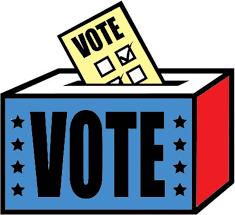Voting is more important than you think

November 2, 2018
The United States of America. The land of the free and the home of the brave. A democracy formed against some of the harshest odds. A place where every citizen, regardless of gender or race, has a right to vote.
But some people are ignoring that right to vote. They do so for a variety of reasons, some claiming that it takes too much time, or that they don’t care about politics, or that they don’t want to be put into the pool for jury duty. Whatever the reason, the bottom line is that people are giving up their right to a say in the government, and doing so is not in the best interest of anyone.
All the time you will hear people complaining about the government. Whether they’re conservatives or liberals, whether they love the president or hate him, that is fine. We are all constitutionally guaranteed a right to freedom of speech. But what is not fine is when people complain about what’s going on in the government when they didn’t bother to vote. Young people, for example, are some of the loudest voices when it comes to critiquing the government, but they are also the worst group of voters. According to the United States Census Bureau, in the last presidential election, only 46.1% of people between the ages of 18 and 29 voted. Compared to the 70.9% of people aged 65 and older who voted, that is pathetic.
Many of these young people will argue that their vote doesn’t matter–one vote can’t make that much of a difference, can it? You may only have one vote, but so does everyone else who votes. Along with that, the strength of your vote depends on which state you live in. Here in North Dakota, your vote, especially your senatorial vote, is significantly stronger than many other states. North Dakota has two senators for approximately 755,000 people, whereas some other states, like California, have the same number of senators for almost 40 million people. That means that in the United States Senate elections, a North Dakotan’s vote has approximately the same influence as 52 Californians’ votes.
Some may argue that the hassle of voting and being put in the pool for jury duty after registering isn’t worth it, but again, this is not the case. First of all, in North Dakota, you do not have to register to vote. The only requirements to be able to vote here are bringing acceptable proof of ID and residency to the polls. And, even if you have to spend an hour or two waiting once you’re there, isn’t that worth it to be able to have a say in the next several years of our government?
North Dakota is one of the easiest states to vote in. In other states, such as Alabama, voters have to register at least 15 days before election day. In Alaska, you must register a full 30 days before the election. Plus, when it comes to the matter of jury duty, that is no reason to not vote. According to a study conducted by the Defense Research Institute (DRI) in 2014, only 64,000 people actually had to serve federal jury duty that year. That’s only 0.03% of the US population. In other words, a 0.03% chance of getting called for jury duty is not a valid reason to avoid voting.
People fought and died for our right to a government in which we all have a say. They didn’t fight only for themselves, they fought so that their children, and their children’s children, and our children could be free and live in a fair, democratic state with the right to vote. But the only way that the US will ever be a truly fair government is if the citizens get off of their couches and become active. Participatory democracy only works when we have participants.